Getting Started with Base HAT + Quectel Modules
This section provides instructions for the hardware setup of the Base HAT with Quectel modules.
Before we jump into the tutorial, let us check all the items required for this is available with us and prepare our hardware.
Hardware Prerequisites
The following components are typically included with the Cellular Modem Kit containing Quectel modules. The goes as follows:
- Raspberry Pi (Model 4 or 5 are recommended)
- Sixfab 3G/4G & LTE Base HAT
- Quectel EC25/EG25 mini PCIe Module or Quectel UC20-G Mini PCle 3G Module
- LTE Full Band PCB Antenna
- LTE – GNSS Dual u.FL Antenna
- 40 pin header
- Right Angle Micro USB Cable
- Sixfab SIM or other available SIM
🟢 Ensure that the Sixfab SIM is registered and activated via Sixfab Connect.
📖 Note
Optionally, a Triple Port u.FL Antenna can be used, or any other combination of LTE and GNSS antennas.
Hardware Setup
1. Attach the Quectel EC25/EG25 mini PCIe module to the HAT.
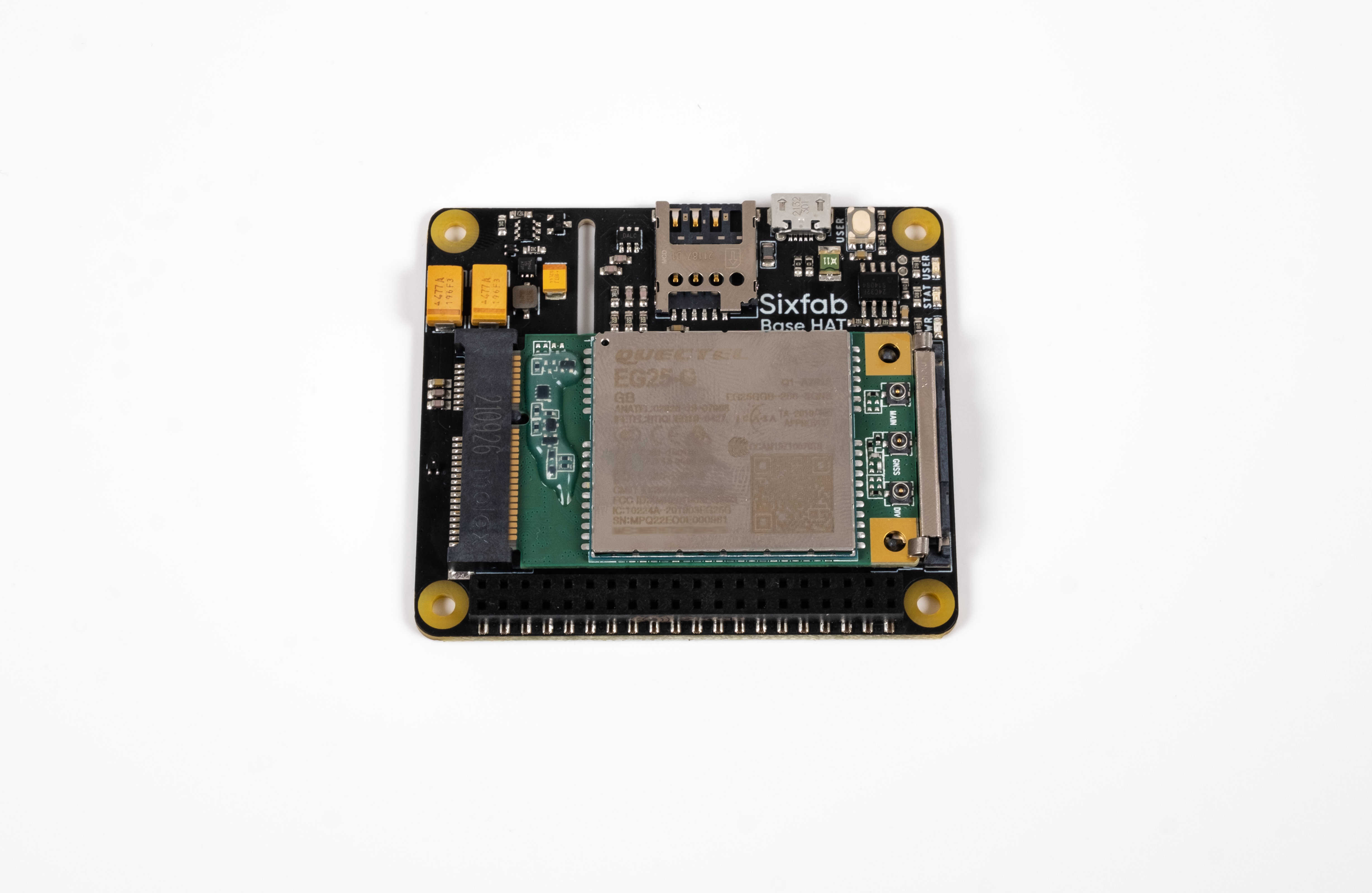
2. Attach the antenna to the mini PCIe module.
Make sure the right antenna is connected to the right port. Attach LTE full band PCB antenna/LTE connector of the LTE-GNSS dual antenna to the main Antenna interface/diversity antenna interface & GPS Antenna portion goes to the GNSS antenna interface.
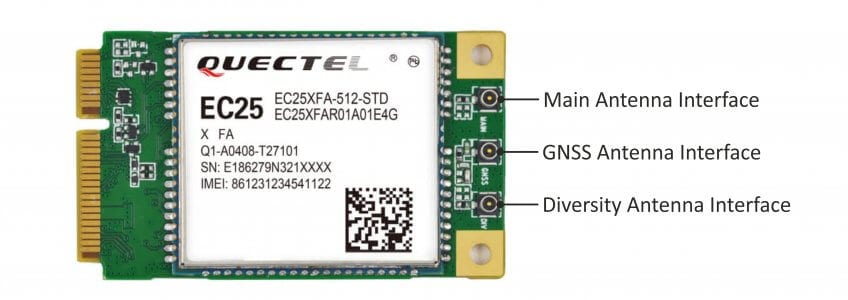
EC25 Antenna Interface
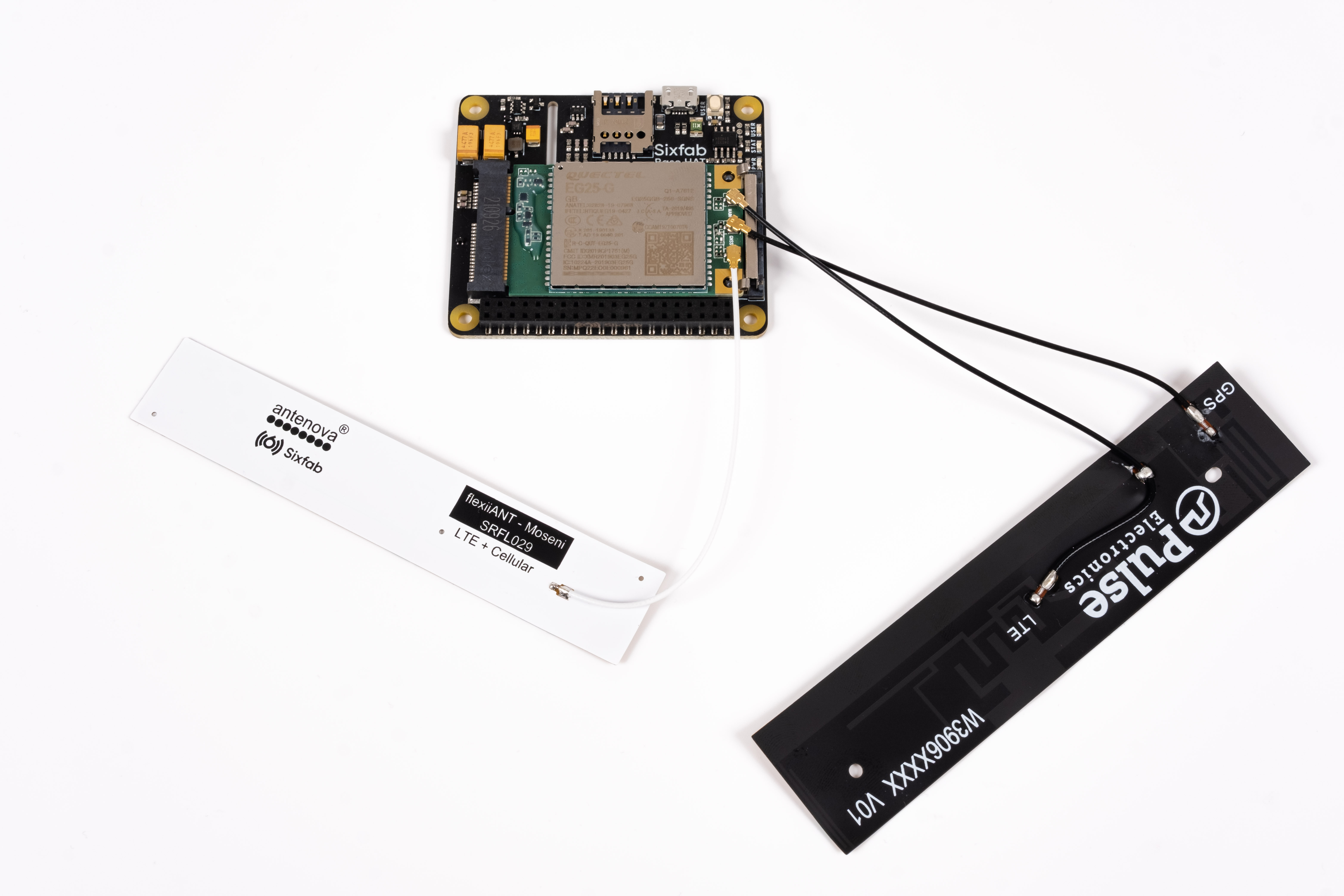
3. Attach 40 pin header to the Base HAT that comes with the HAT and insert the Sixfab Connect SIM to Base HAT.
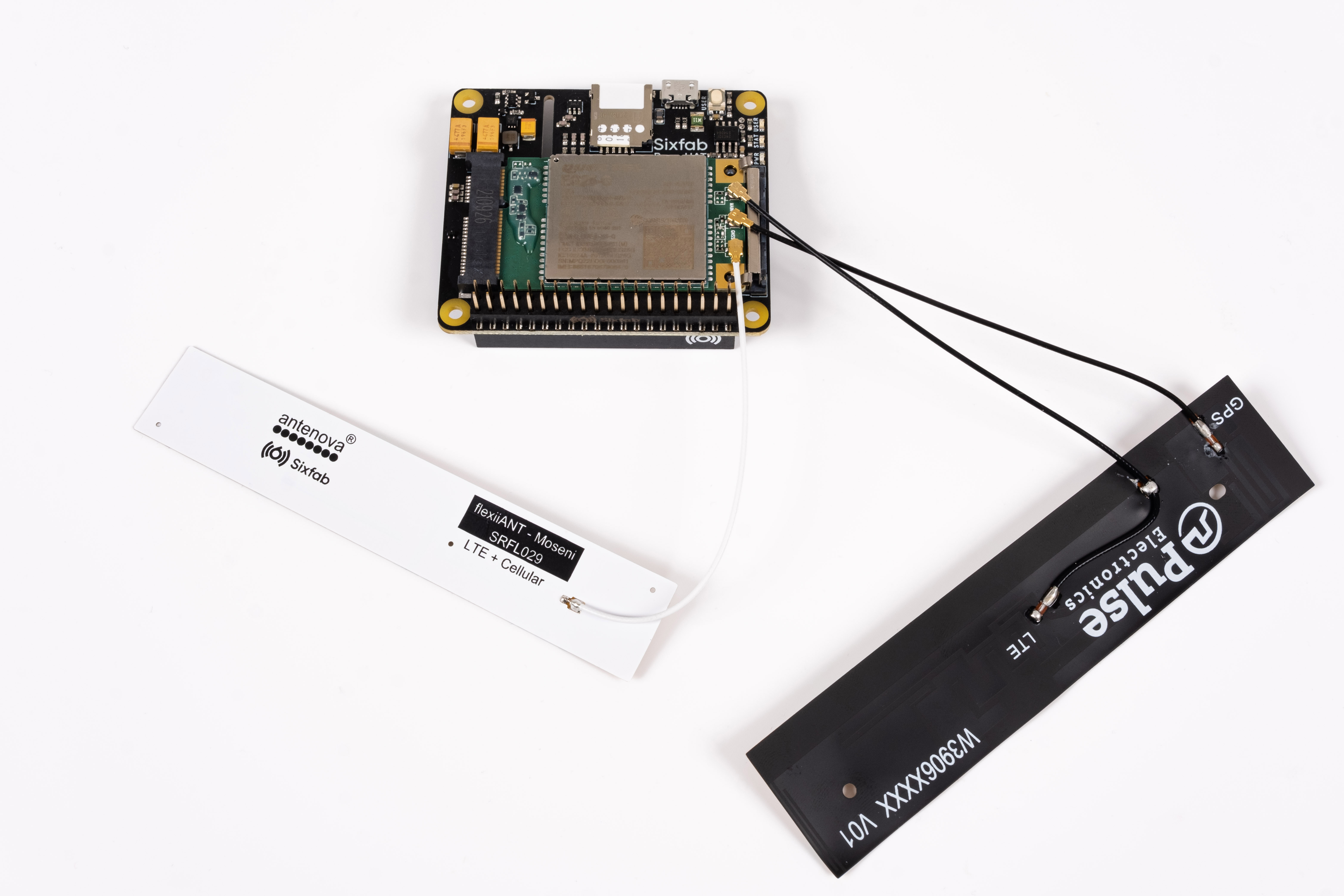
4. Now attach the HAT to the Raspberry Pi.
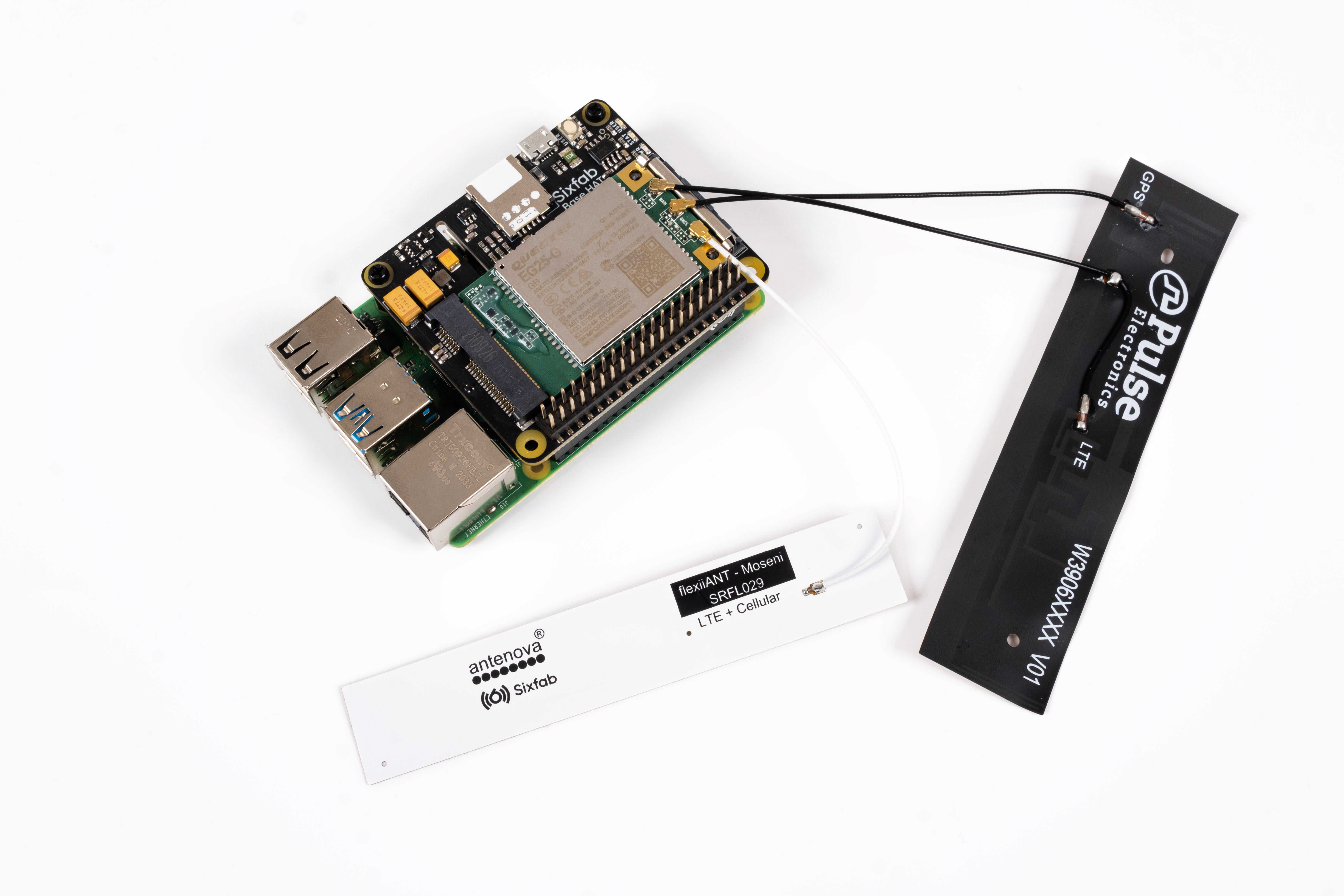
5. Finally connect the micro-USB cable to the HAT and Raspberry Pi.
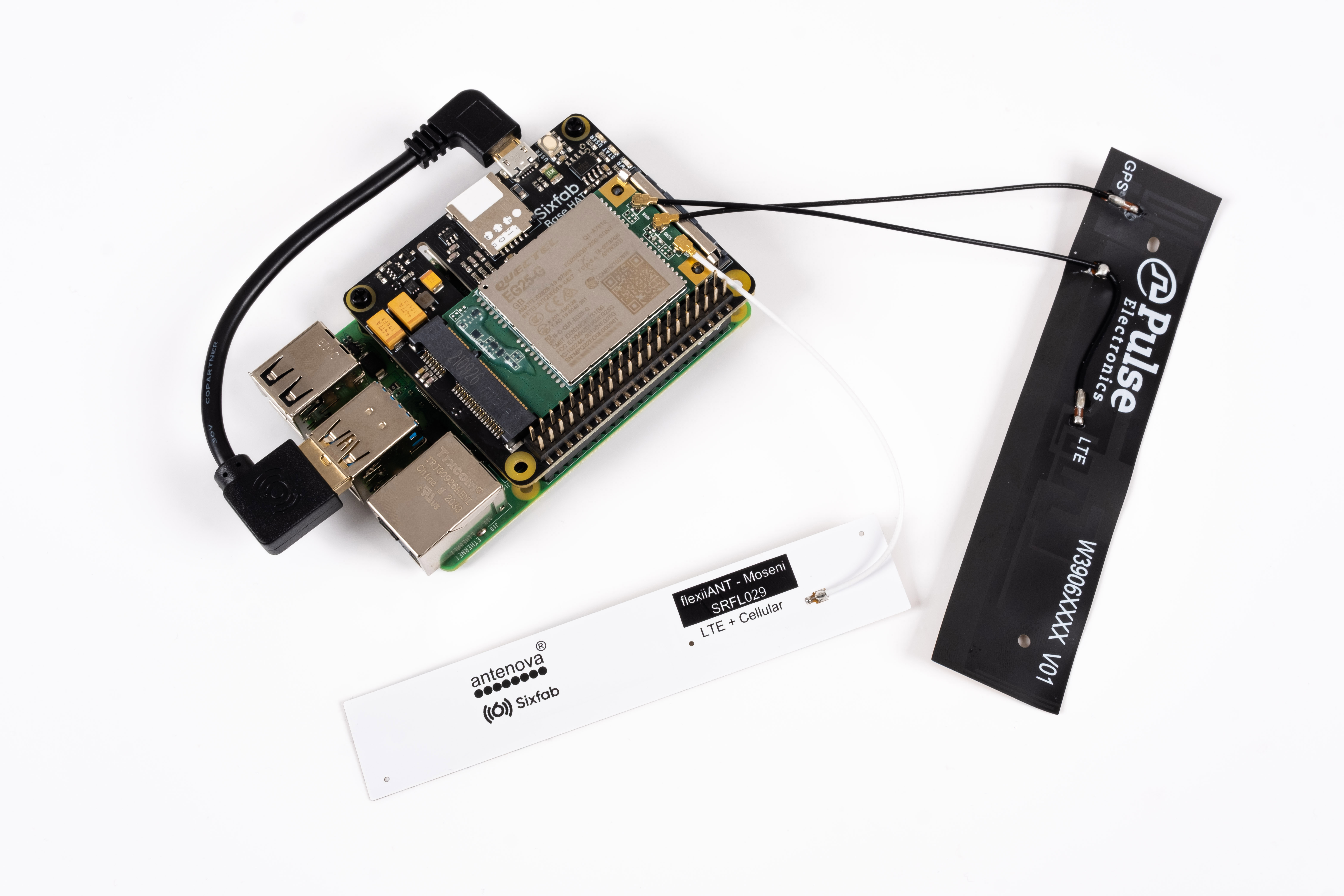
Checking Driver
Then open up a terminal and run the commands below. Expected outputs are as follow:
📘 Tutorials
Please visit our tutorials page to set up the cellular internet connection or explore other tutorials.
Updated 25 days ago
